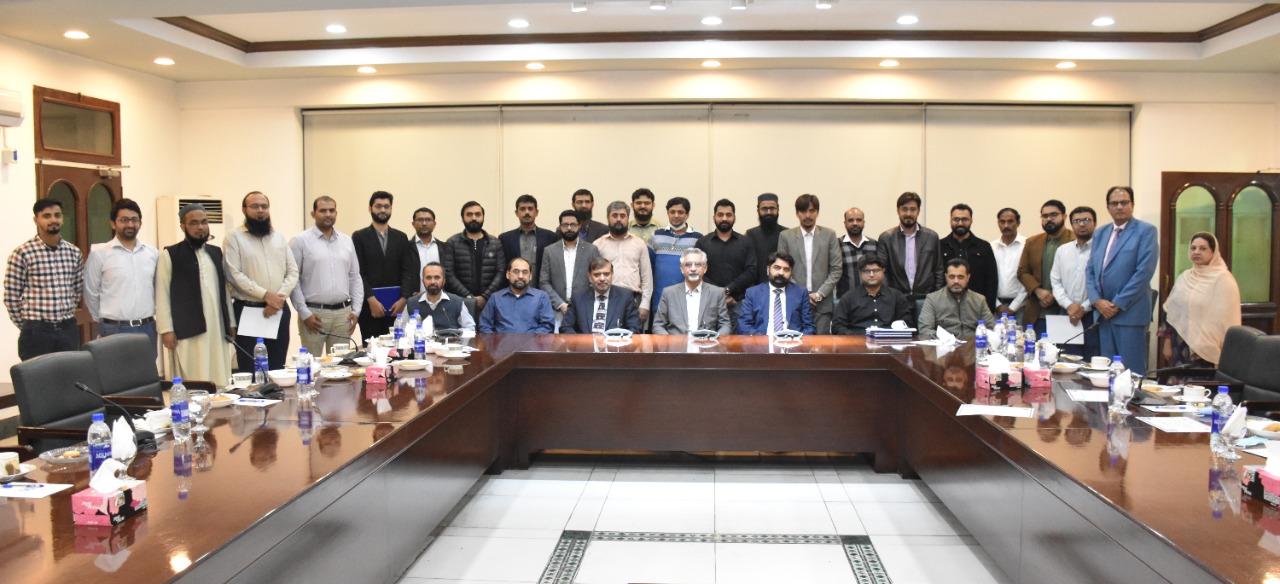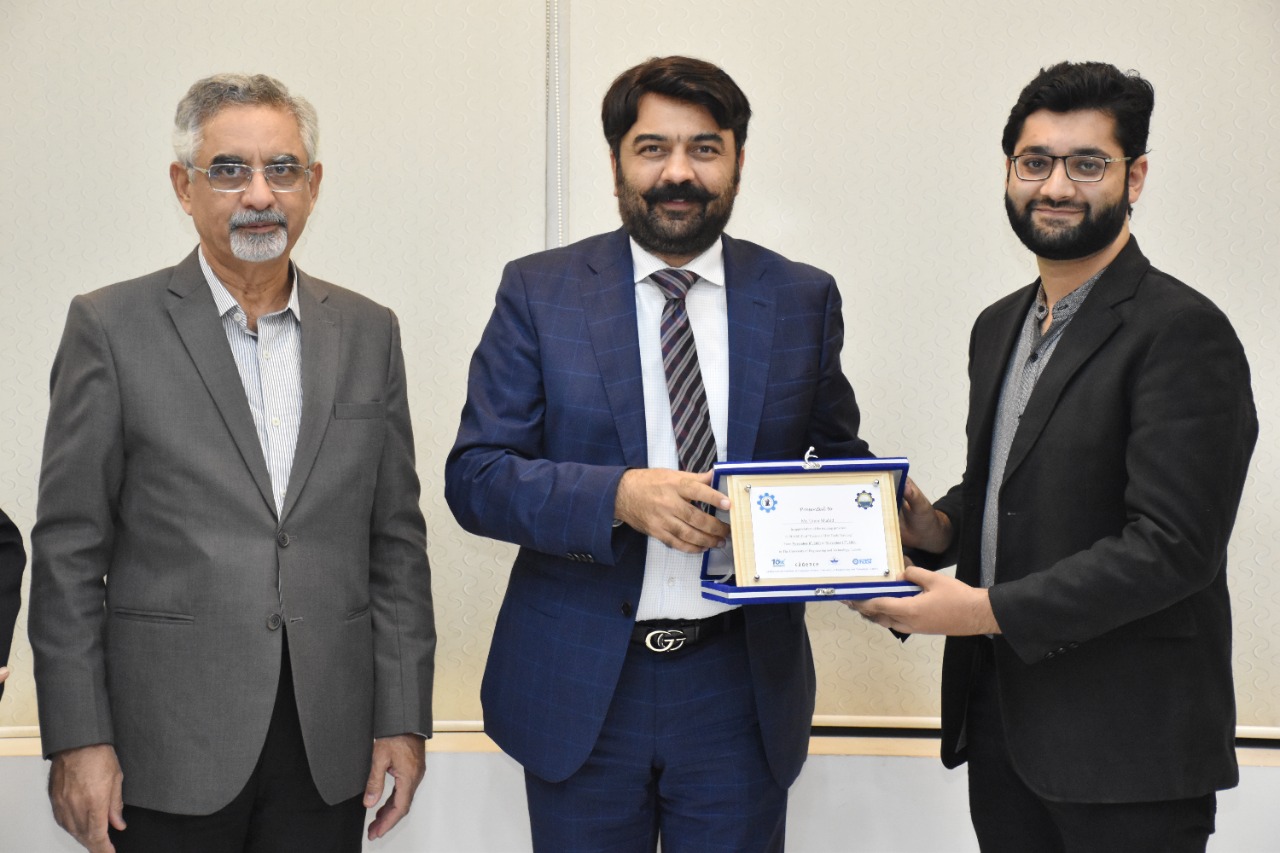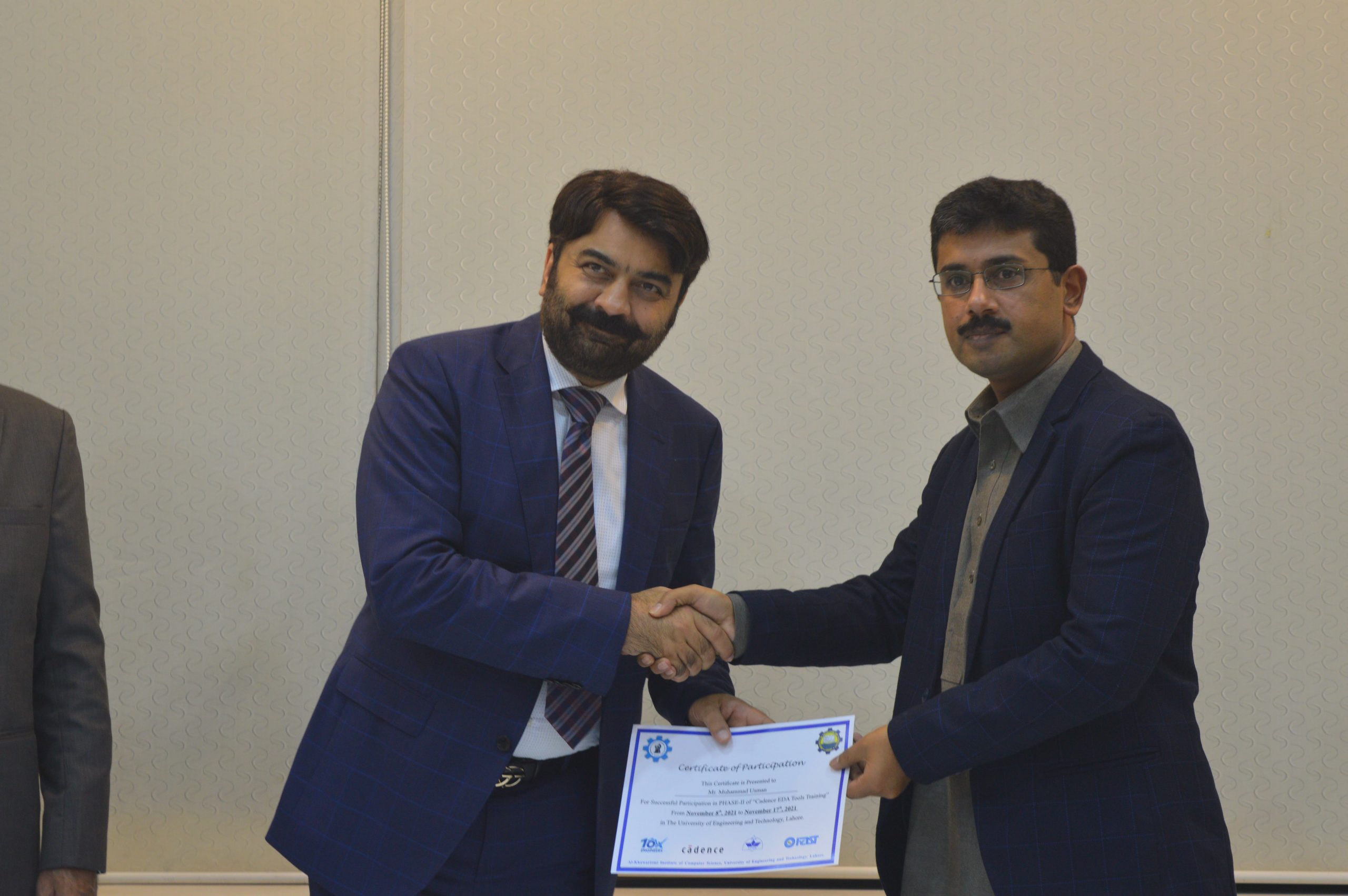Second Phase of Cadence EDA Tools Training Program concludes with the presence of Provincial Minister of Punjab for Higher Education, Raja Yasir Humayun Sarfaraz.
“We have set the direction, but there’s still a long way to go,” says Minister Higher Education, Raja Yasir Humayun Sarfaraz while speaking at the closing ceremony of the Cadence EDA tools training program (Phase-II).
A specialized training program (Phase-II) on Cadence EDA tools was organized at UET Lahore. A total of 17 trainees from the 8 leading educational institutes of Punjab including UET Lahore, UET KSK, UET Taxila, ITU Lahore, IUB Bahawalpur, MNS Multan, KFUEIT, Rahim Yar Khan, UOG, and UOC got their hands on the Cadence tools. Experts from various institutes shared their diversified experiences with the attendees. 8 days long training program was kicked off with an orientation session on 8th Nov 2021 led by Dr. Ahsan Tahir, and Dr. Ubaid U. Fayyaz that included a General Overview of ASIC Design Flow and a General Overview of Digital Logic Design and System Verilog.
Dr. Tayyab Mahmood from UET (RCET Campus), Dr. Bilal from 10x Engineers, Dr. Awais bin Altaf from LUMS, and Dr. Rashad Ramzan from FAST NUCES had sessions on various topics including PERL and TCL scripting for EDA Tools, Logic Verification in Cadence Xcelium, Genus Synthesis Solution with Stylus Common UI, Conformal Equivalence Checking, Innovus Implementation System, Innovus Clock Concurrent Optimization, and Analog/Mixed Design Flow respectively.
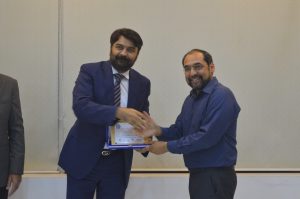
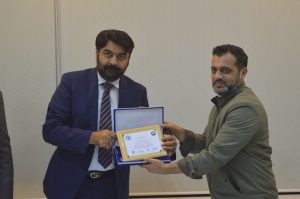
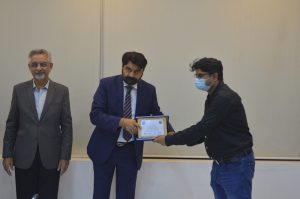
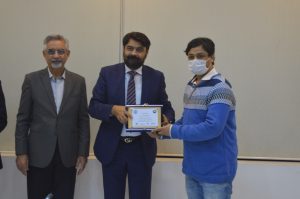
The training program came to an end with a closing ceremony which was graced by the Honorable Minister Higher Education Raja Yasir Humayun Sarfaraz with his presence as a Chief Guest. Director Al-Khawarizmi Institute of Computer Science (KICS), Prof. Dr. Waqar Mahmood not only briefed the Chair on different aspects of the training but also thanked him for his unprecedented support in achieving this great milestone again this year. “We focused on digital tools in the first phase of this training but this time we have included the analog components as well. We are also working with the instructors to encourage other Islamic universities to participate in the training sessions and include multiple courses as a regular curriculum.,” said Dr. Waqar Mahmood.
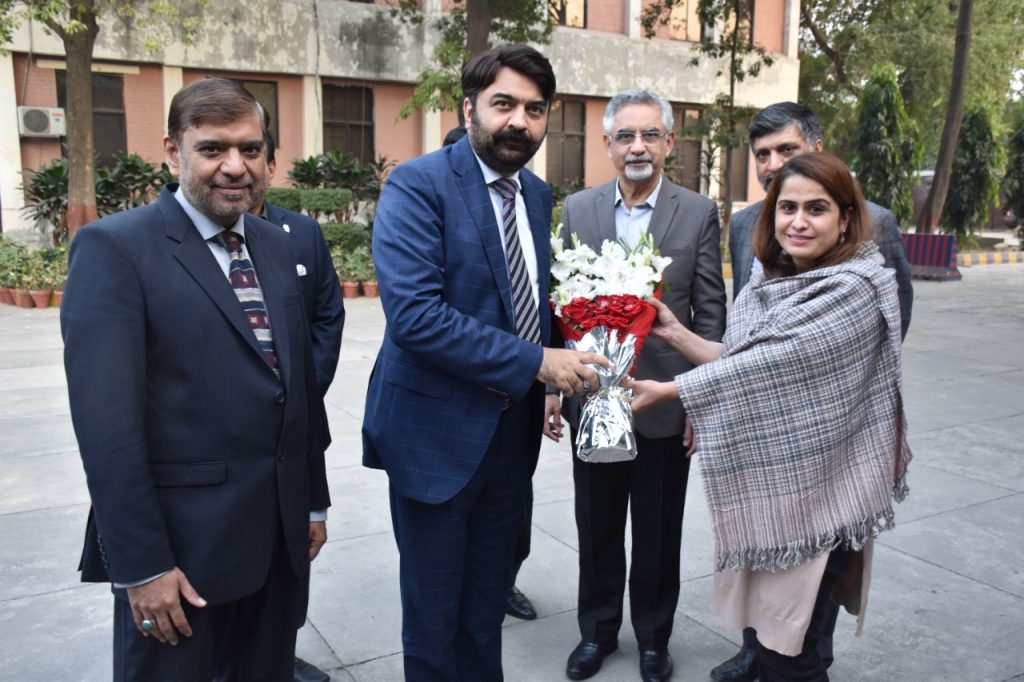
“This entire endeavor is the brainchild of Mr. Raja Yasir Humayun Sarfaraz. With the help of Dr. Waqar, Dr. Tahir, and Dr. Bilal, we assisted him in developing an excellent proposal that is both technically effective and cost-efficient,” said Vice Chancellor UET Lahore, Prof. Dr. Syed Mansoor Sarwar in his thanking note. He emphasized his strong belief in this initiative saying, Pakistan would be able to make a significant contribution through this facility.
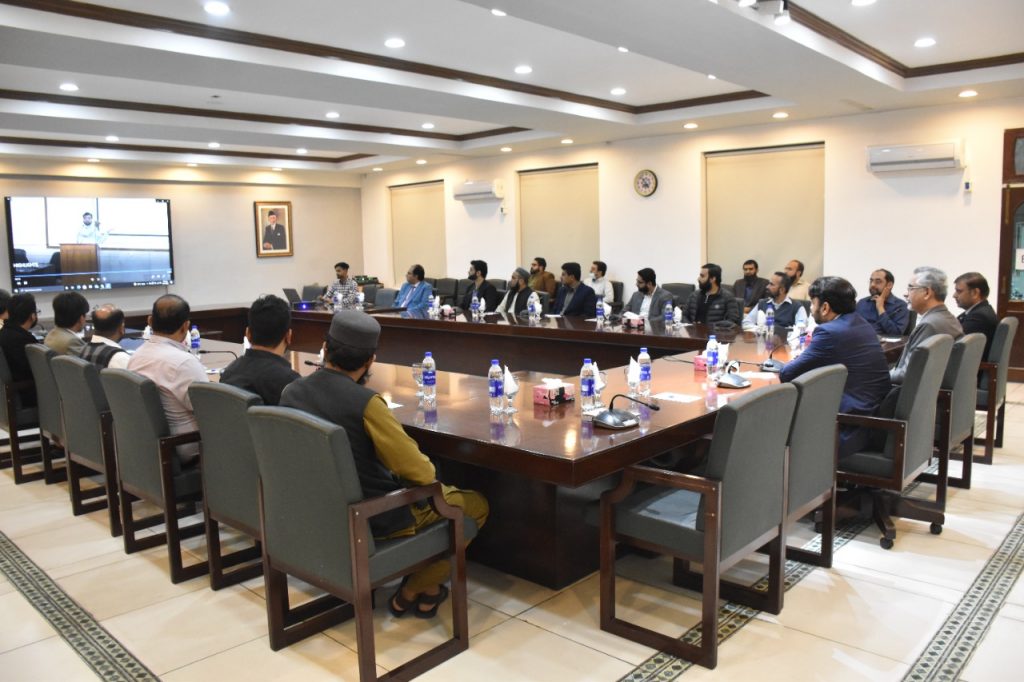
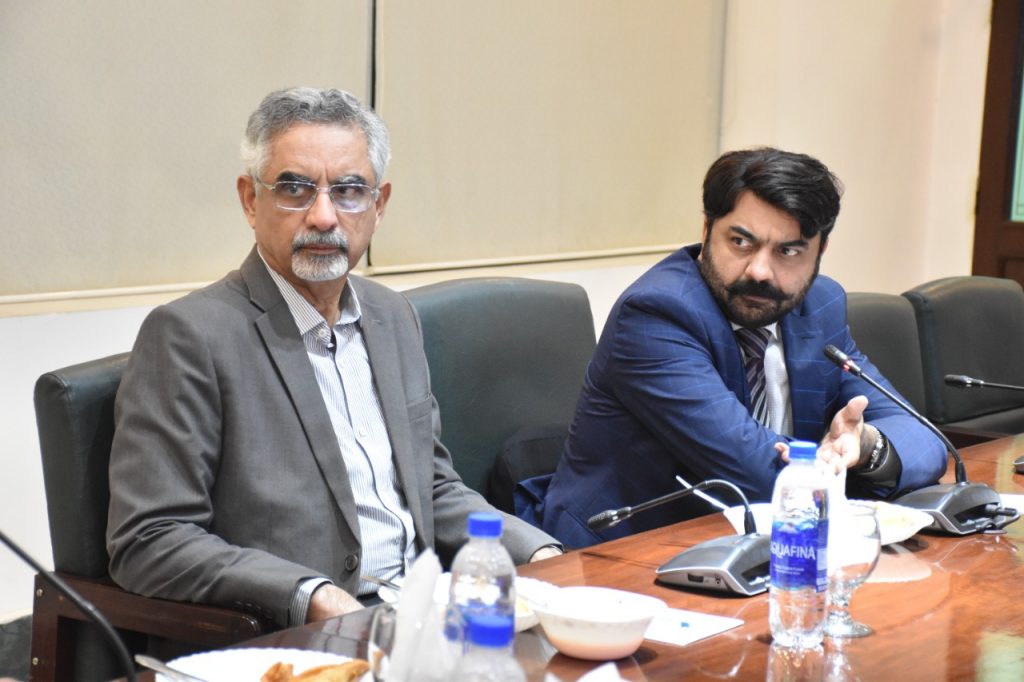
Minister Higher Education, Yasir Humayun Sarfaraz specially thanked VC UET, Prof. Dr. Syed Mansoor Sarwar, Director KICS, Prof. Dr. Waqar Mahmood, and the Professors for their untiring efforts in the execution of the project. ”We have set the direction, but there’s still a long way to go. We need to make people aware especially in the Electrical Engineering field that this is the actual side with a lot of opportunities”. He emphasized the importance of developing quality human resources that will help in job creation. “The primary issue I’ve found is that academic skills do not develop in our graduates, courses in the university sector are kept very large. We teach comparative subjects with great ease.,” said Raja Yasir Humayun. He assured his maximum support in incentivizing chip design technologies like India to get maximum traction and quality outcome.
The closing ceremony was concluded with the presentation of certificates, and souvenirs among the participants, and trainers of the Cadence EDA tools training program.
